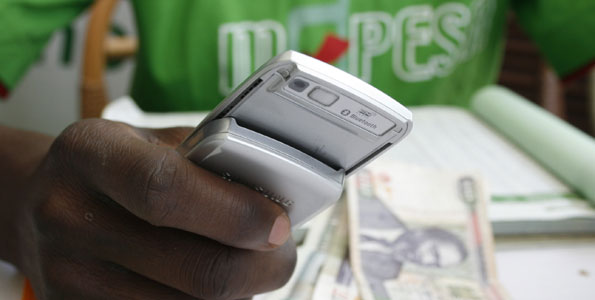
Start up entrepreneurs find it hard to be MPESA agents due to the restrictive requirements like having a solid financial base and having a business that has existed for at least six months. But there exists lesser restrictive ways to own an MPESA shop.
Owning a business is becoming the more feasible option for many unemployed while for some at a time when the unemployment figures in the country stands at a staggering 54 percent. A business also offers the side hustles to be able to earn a decent living.
The bottom line is that the possibility of contributing the Sh21.8 billion, 18 percent of the 2013 Safaricom pre-tax profits is possible so long as one is determined.
Related Reading: How To Start An Mpesa Agent Business With Safaricom
Samuel Musila who has run an M-Pesa stall for a year now in Embakasi stated that “with determination, some savings and a good location, young people can make a few coins to assist them make ends meet.” Safaricom came up with dealership to reduce the responsibility of handling all M-Pesa stalls across the country estimated to be over 20, 000. A dealer becomes the link between Safaricom and a stall operator therefore also creating opportunities for more people.
To be a dealer, you needs to have the following;
- Limited company running for at least six months
- Audited financial accounts
- Registration details of the company
- National identity card or passport
- KRA PIN certificate
- Ksh. 400,000 among other requirements.
These requirements however can be restrictive to young people like Samuel who then decided to buy a till from a dealer, and in the process make money. He affirmed that “you need to have a location where you will have a good number of customers. Then a minimum of Sh35,000 to operate as a float and some cash-in –hand as well as lease or buy a till from an existing dealer.”
The tills, while they are supposed to be given for free to those wishing to run a stall are however sold depending on a catalogue of factors. It ranges from Sh30,000 to Sh100,000. A critical determinant is whether when you buy, the dealer will have part of your commission or you will have all of it. Hence if you share the commission with the dealer, you buy the till at a lesser amount. However Safaricom has commented on this issue stating that it is illegal to sell the tills since they are supposed to be issued at no cost.
There are two types of tills. One an aggregated till meaning it has the store management menu which enables one to move float from working to float and a non-aggregated till meaning it does not have the store management menu hence, one does not have full control of the till since someone has to move the money from working to float. This can be disadvantageous as Samuel asserted that sometimes it`s even worse because someone can move your float to another till without your permission since they have administration privileges. This implies that the functions performed by the different tills have a direct bearing on the cost an entrepreneur will spend to run an M-Pesa stall.
Samuel ensures he has about sh100,000 when operating to ensure he has enough float and cash-in-hand to transact. A float is some amount of money in the till to ensure a customer can deposit and cash-in-hand is the amount that a customer is given after withdrawing. The amount of money for operating depends on the location as those with more customers will need a higher amount.
There are designated banks that the M-Pesa operators ‘buy float’. They include National Bank, Kenya Commercial Bank, Co-operative bank among others.
The banks charge Sh100 for every float buying regardless of the amount of money. The minimum float amount one can buy is sh35,000. Samuel explained that “when you go to an M-Pesa shop and the attendant says they haveno float, it could be that s/he has little float hence does not want to go to the bank, be charged Sh100 to buy some more float Operating an M-Pesa, just like many businesses like less expenditure to increase profits. M-Pesa operators buy floats (money) from designated banks, and then use it for trading.”
In this regard, Musila asserted “many operators prefer withdrawals than deposits. For withdrawals, we get more commissions and also when there are more deposits, it means the operating money (float) will reduce hence forcing the attendant to go buy float from the bank meaning s/he will spend sh100 which naturally they do not like.”
M-Pesa agents earn a commission of 10 percent from the transaction costs of the month. Mr. Musila has employed someone to operate the M-Pesa and he pays him Sh10,000. The other expenses he incurs in a month is the rent but he makes about Sh20,000 a month as profit but this varies depending on the number of transactions since it is commission based.
No comments:
Post a Comment